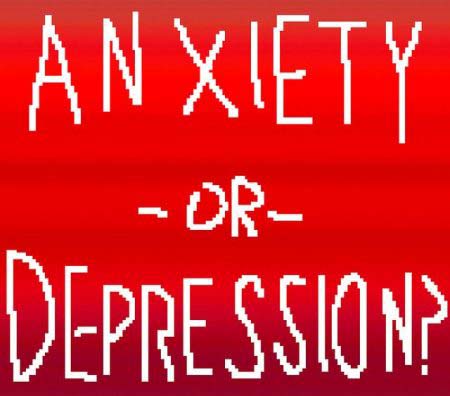Depression and Anxiety Symptoms and Your Personal Journey

Depression and anxiety symptoms are far more closely related than may at first appear. What might such symptoms mean for your personal journey?

Research in recent years has shown that there is great overlap and interconnection between depression and anxiety. How do depression and anxiety symptoms fit in to our journey towards wholeness?
There are actually two important things to be aware of in this regard. One is that depression and anxiety are not discrete things. The best research indicates that they are really are two different aspects or forms of the same underlying issue.
Second, in the eyes of many experts, depression and anxiety symptoms are not really a disease. They are really signs that key needs of the individual are going unmet. Some psychologists would regard those as social or relational needs. Depth case studies would see these needs somewhat more broadly, in terms of the need for good relationship, certainly, but also in terms of a need for security and a sense of control of one’s environment, a need for self-esteem and self compassion, and, above all, to a sense of connection to meaning in one’s life.
Anxiety and Depression: Two Sides of the Same Coin
Clinical psychologist Michael Yapko states, “The shared cornerstone of anxiety and depression is the perceptual process of overestimating the risk in a situation and underestimating personal resources for coping.” Also anxiety and depression both tend to make us avoid situations that create fear and discomfort, when we need the opposite: to find the resources that help in dealing with and moving through such situations. One common type of situation that may be connected to anxiety and depression would be social encounters that the individual finds difficult.
Turning to Face Anxiety and Depression
In order to move through symptoms of depression and anxiety, we have to face and to explore them. This can be challenging. Depth therapists know that the strong negative feelings coming from depression and anxiety can easily make us avoid them.
To truly look anxiety or depression in the face requires self acceptance and self-compassion. It can often be very hard to accept ourselves, or feel compassion towards ourselves. Often, this has to do with hard lessons that we have be taught through shame. We can be shamed at any point in our life journey, but some of the most toxic shaming that we experience may well be in our early lives.
Finding a Way Beyond Shame and Self-Rejection
Shame is an extremely difficult emotion for people, most of the time. Most people want to avoid it at all costs. When we need to deal with our shame, there can be great value in a good, supportive /a-midlife-transition relationship, enabling the individual to support her- or himself, and to find compassion for themselves.
Jung, and Listening to the Exiled Voices
Renowned psychiatrist C.G. Jung went through a difficult period, in 1913 – 1919, after ending his professional relationship with Freud. He underwent a dramatic midlife transition, and also experienced much depression. At that time, he explored many things in his psyche that he had not confronted previously. In his writings, Jung makes it clear that his encounter with these hitherto unknown parts of himself actually enabled him to find a sense of hope and forward direction for his life.

Listening to Our Inner Life with Compassion
Similarly, dealing with our depression and anxiety symptoms requires us to listen to parts of ourselves that we would rather avoid. It requires listening with understanding and self-compassion. As the poet Rilke tells us, “Perhaps everything that frightens us is, in its deepest essence, something helpless that wants our love.”
A key part of a /a-midlife-transition approach to dealing with depression and anxiety symptoms involves listening to parts of ourselves that actually do feel helpless, and that are in need of our deepest compassion. It also often involves parts of ourselves that carry unacceptable emotions, like rage, or jealousy, envy or shame.
Often we need the help of an experienced depth psychologist to find, listen to, have compassion for, and protect in the most appropriate way possible, those deeply fragile parts of ourselves, and to listen to their inner wisdom. This is an essential part of the journey towards wholeness.
Brian Collinson, Registered Psychotherapist & Jungian Psychoanalyst
[cta]
